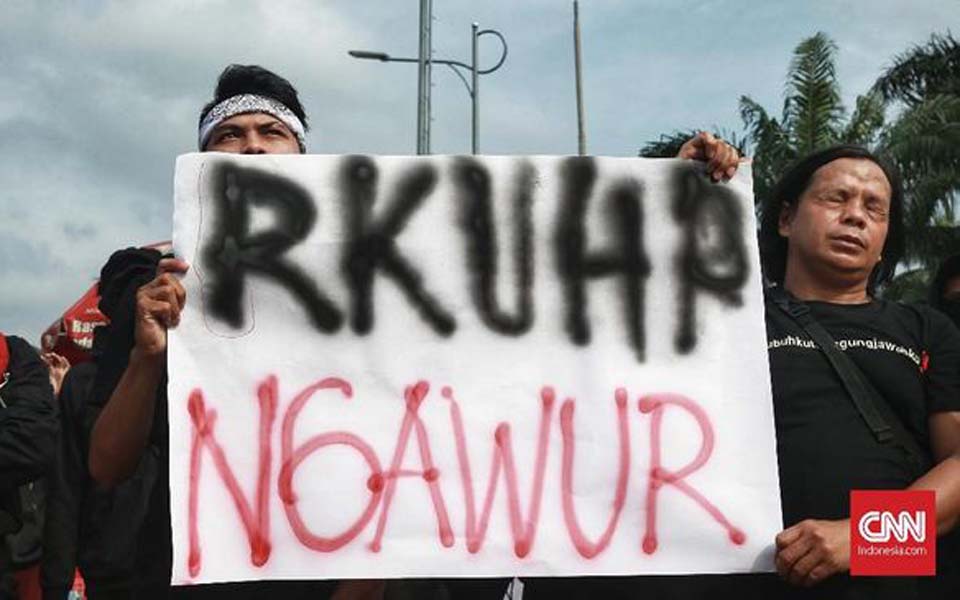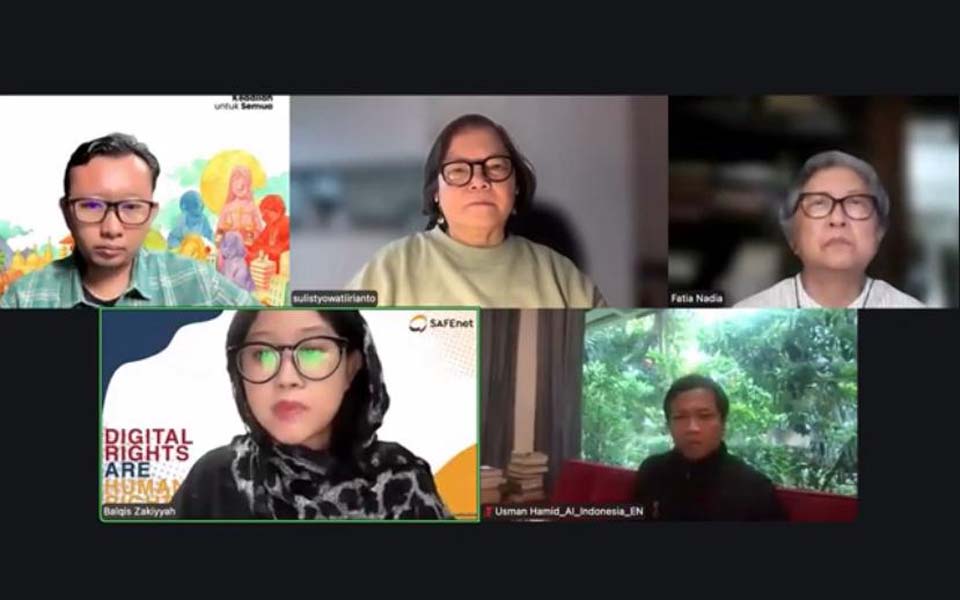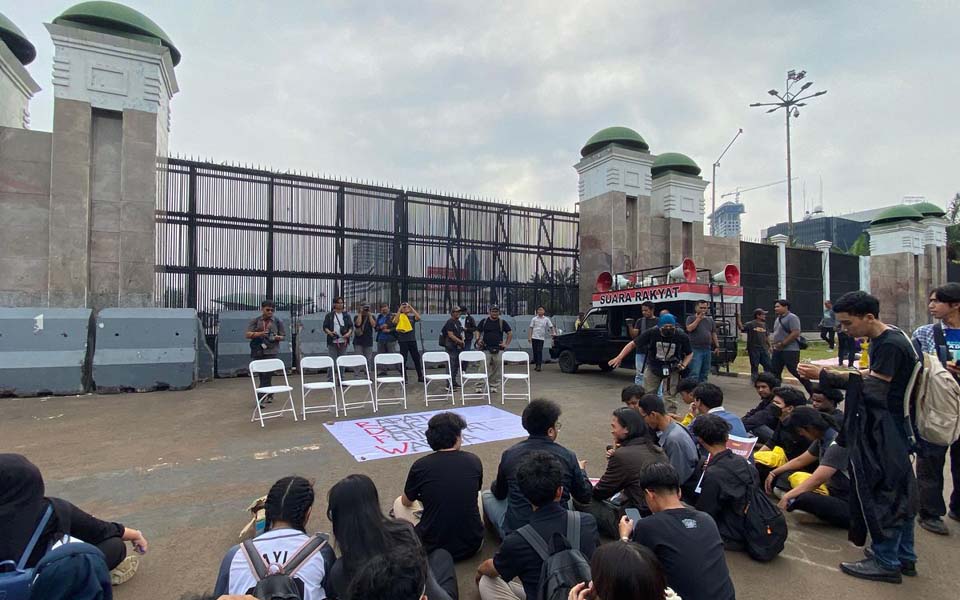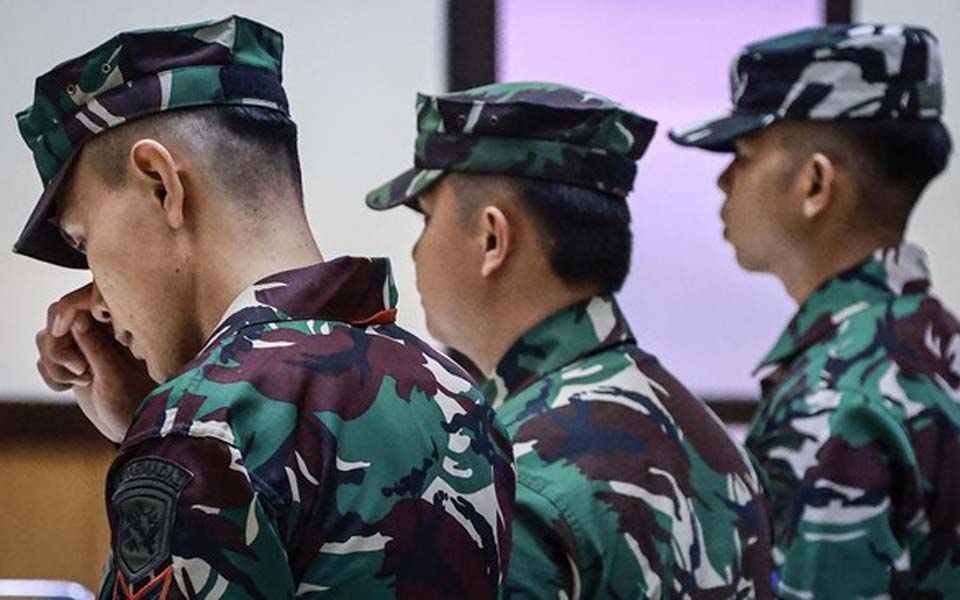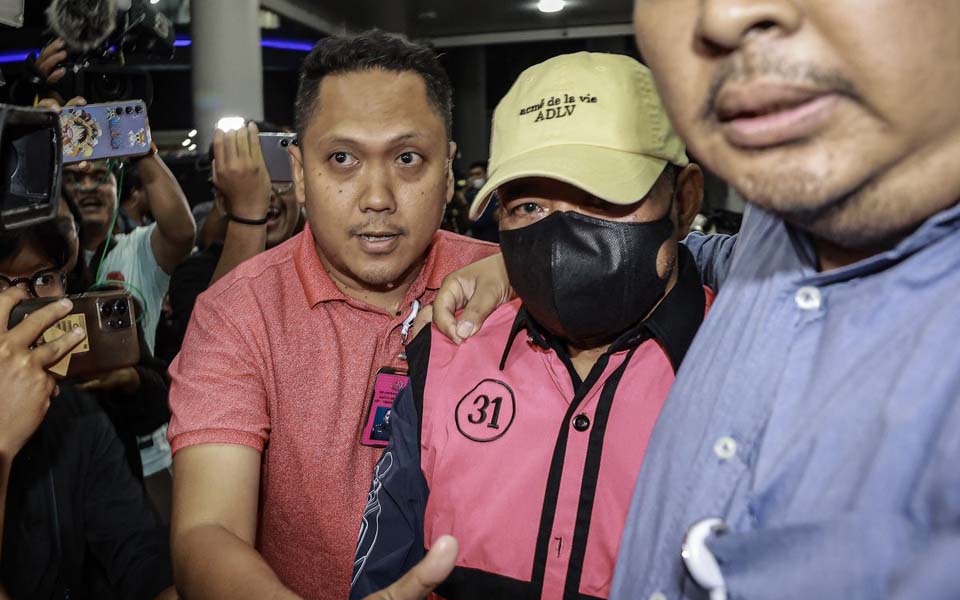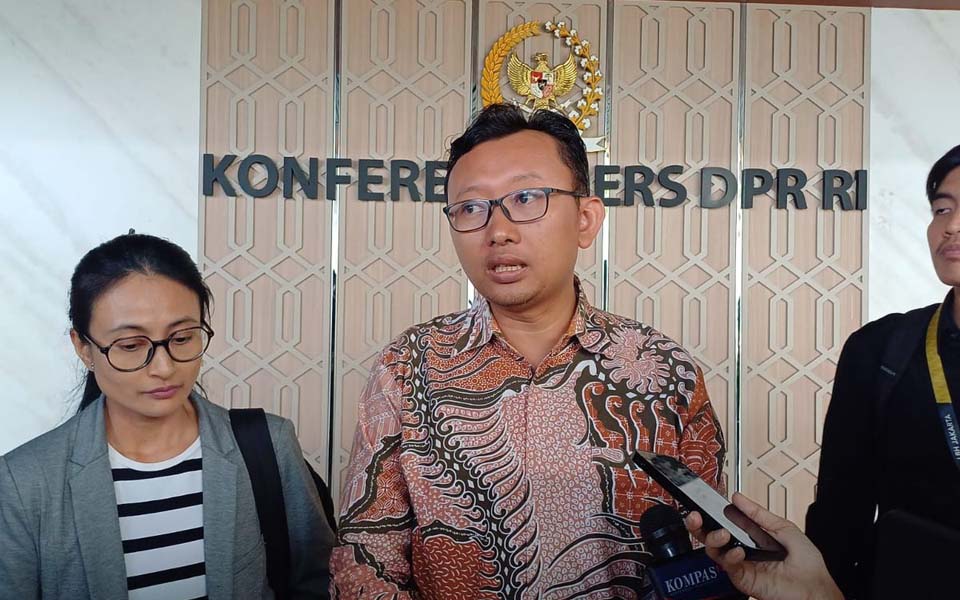Glery Lazuardi, Jakarta – The Civil Society Coalition is calling on the government to postpone the ratification of the Draft Criminal Code (RKUHP) because it still contains articles on insulting religion and blasphemy which are open to multiple interpretations and are applied in a discriminative way.
“We ask that the ratification of the RKUHP be postponed and the discussion with members of the interested pubic be reopened by prioritising the legal basis in a system of criminal law which is established on the basis of lex scripta [written or statutory law], lex stricta [no penalty without a law], lex temporis delicti [the principle of non-retroactive law], lex certa [the principle of legality] along with the spirit of ‘restorative justice’ and the principles of human rights”, said Pratiwi from the Jakarta Legal Aid Foundation (LBH) on Tuesday July 2.
According to Pratiwi, there are still articles in the RKUHP which will create concern if they come into force, the first being Article 2.
Pratiwi explained that according to Article 2, laws which are “alive” in society but are not regulated under the RKUHP can still be subject to prosecution. This is a deviation from the basic principles of legality.
“Although it is said to be in accordance with the values contained in [the state ideology] of Pancasila, the UUD 1945 [the Constitution], HAM [human rights] and common law which is acknowledged by a civilised society, these stipulations open the way for law enforcement of the kind seen in discriminative perda [bylaws]”, she said.
Second, Articles 250 and 313 which still use the term “penghinaan” (to insult, defame or demean) which is subjective in nature.
Third, the title of Chapter VII which is “Crimes against Religion and Religious Life”. This title is wrong in terms of language as well as concept. Religion should not be the subject of law, the subject of law that needs to be protected is the adherents of a religion.
“As a concept it places religion as a problematic legal subject, because it cannot represent itself in a legal process. Meaning it depends upon the existence of a person who represents a religion. This is bearing in mind that there is a diversity of religious beliefs, this is even the case within one particular religion, so if the state listens to and accepts a single religious interpretation it means the state is acting in a discriminatory way”, she said.
Fourth, while Article 315 does indeed not prohibit a person from not having a religion instead it includes “hasutan”. The problem is the word “hasutan” (incitement, provocation, agitation, sedition) which open to multiple interpretations so it could target people who just invite others to question a religion or even people who do not have a religious belief.
Fifth, Article 316 on creating a “gaduh” (uproar, noise) near a place where people are worshiping actually has a good intent. It is just that the word “gaduh” is open to multiple interpretations related to how load a sound has to be to be considered “gaduh”.
Sixth, Article 503 on the theft of holy objects is problematic. Is there a ranking of objects and religious holy objects, for example between a statue and a glass.
“The other question is, what categorises a religious holy object? Would a necklace with a certain religious symbol be included as a religious holy object?”, she asked.
In addition to this, the group highlighted the closed deliberation of the RKUHP which has made it difficult for interested members of the public who want to participate.
The basis for the ideas and arguments behind the formulation of the offences contained in the current RKUHP, particularly the articles on religion, instead of resolving or preventing crimes and conflicts, will instead further open the way for reinforcing discrimination, conflict and legitimising acts of intolerance within society.
“Aside from this the spirit of ‘restorative justice’ which should be prioritised rather than the spirit of ‘punishment’, in the formulation of the above offences, is still very minimal. It can be seen that the spirit of restricting rather than guaranteeing religious freedom and worship is the principle approach”, she added.
[Translated by James Balowski. The original title of the article was “Koalisi Masyarakat Sipil Kritisi Konten Pasal-Pasal RKUHP Tentang Penodaan Agama”.]





